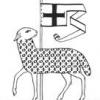well I am still kind of confused on how to draw a splash screen using opengl
splash screen
Open your window, draw a rectangle that fills the window, then apply your splash image as a texture to it. Run your functions that load your game images and data. Start your game loop and start drawing your game.
As indicated, you need a way to manage game states. A game state represents a given "phase" of the game's execution: playing the intro video/splash screens for one, displaying and interacting with the opening menu, playing the game. Each of these states includes their own code/data for doing what they do. States typically encapsulate a set of input/update/render operations. (Though some state management can get more difficult than that, it amounts to about the same idea.)
A commonly-used paradigm is that the update routine of a given state, when called, will return a pointer to the state that should be executing next.
Consider the following rough interface for a game state:
Similarly, the MainMenu state would implement its own versions of those three methods. Update wouldn't really do a whole lot, since there isn't much in the way of action going on in a main menu. Update some animations if you have an animated scene for your background. Update some particle effects, whatever. render, of course, would draw the menu. handleInput would listen for mouse clicks, and pass appropriate input to the various UI widgets comprising the main menu and any associated sub-menus or screens. The Start Game menu button (or equivalent) would be attached to a process that would, when clicked and handled in handleInput, construct a new Game state. The Exit Game button would similarly construct an ExitGame state that would shut down all systems and terminate the loop.
And so on.
At the heart of the system is your game loop which operates something like this:
After that, it's really just a simple matter of implementing your handleInput, render, update, and shouldExit methods appropriately for the state they represent.
A commonly-used paradigm is that the update routine of a given state, when called, will return a pointer to the state that should be executing next.
Consider the following rough interface for a game state:
class BaseState
{
public:
virtual ~BaseState();
BaseState *update(float dt)=0;
BaseState *handleInput()=0;
void render()=0;
bool shouldExit()=0;
};
Similarly, the MainMenu state would implement its own versions of those three methods. Update wouldn't really do a whole lot, since there isn't much in the way of action going on in a main menu. Update some animations if you have an animated scene for your background. Update some particle effects, whatever. render, of course, would draw the menu. handleInput would listen for mouse clicks, and pass appropriate input to the various UI widgets comprising the main menu and any associated sub-menus or screens. The Start Game menu button (or equivalent) would be attached to a process that would, when clicked and handled in handleInput, construct a new Game state. The Exit Game button would similarly construct an ExitGame state that would shut down all systems and terminate the loop.
And so on.
At the heart of the system is your game loop which operates something like this:
void loop(BaseState *startingstate)
BaseState *currentstate=startingstate;
Timer timer;
if(!currentstate) return;
float currenttime=timer.getCurrentTime();
float elapsedtime=0;
while(currentstate && !currentstate->shouldExit())
{
BaseState *newstate=currentstate->update(elapsedtime);
if(newstate) currentstate=newstate;
newstate=currentstate->handleInput();
if(newstate) currentstate=newstate;
currentstate->render();
float nexttime=timer.getCurrentTime();
elapsedtime=nexttime-currenttime;
currenttime=nexttime;
}
}
After that, it's really just a simple matter of implementing your handleInput, render, update, and shouldExit methods appropriately for the state they represent.
This topic is closed to new replies.
Advertisement
Popular Topics
Advertisement









